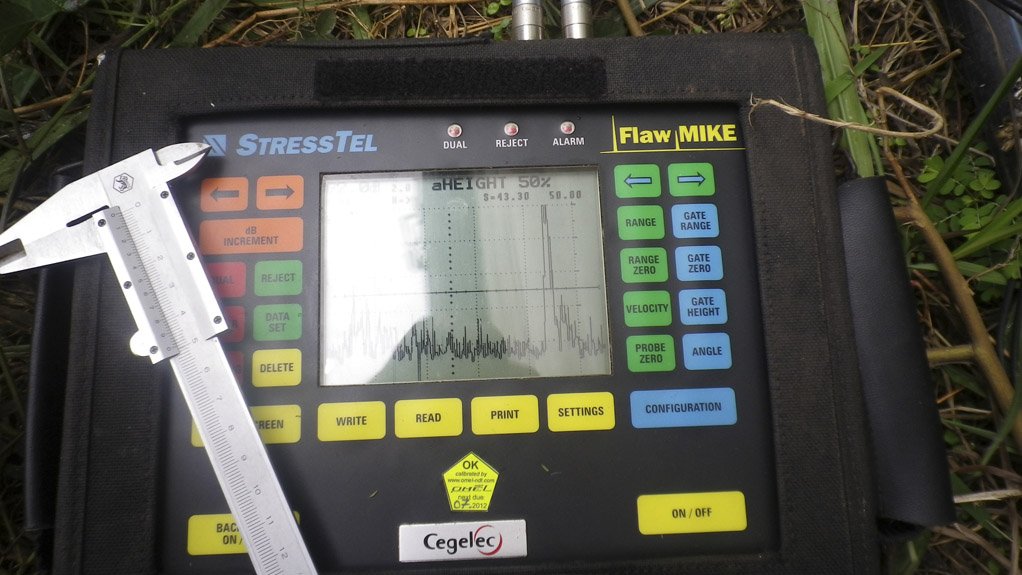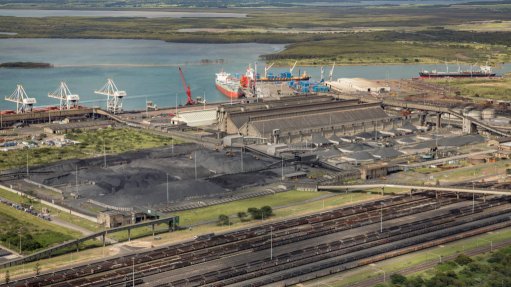Importance of nondestructive testing emphasised


CERTIFICATION REMAINS CRUCIAL All pressure equipment has to be inspected by a competent person every three years
Regular testing and certification of equipment used in the engineering industry remains important to ensure that degradation of equipment is minimal, comments inspection and testing solutions provider Non-destructive Testing and Inspection Solutions (NIS).
NIS spokesperson Jannie de Beer details that equipment starts to degrade once it is exposed to the atmosphere. He adds that, in some areas, the atmosphere is more corrosive and the equipment could degrade quicker than predicted during the design.
This might manifest in instances where a pressure vessel being used in Johannesburg might not require as much external protection (coating) as the same vessel would when used in coastal towns.
“Contaminants in the product may also affect the corrosiveness of the inside surfaces of equipment . . . degradation might develop in different areas inside two seemingly identical pieces of equipment and is not visible from the outside,” De Beer adds.
He highlights that by inspecting equipment regularly and knowing where to expect degradation will allow for determining the corrosion rate, from which the remaining life can be calculated. This will prevent failure of equipment and loss of containment of the product. It will also allow time to plan for replacement equipment in advance.
Detecting degradation early could also enable equipment owners or users to perform simple repairs such as paint to stop the progress of corrosion, De Beer adds. However, if identified too late, repair become more expensive, especially when grinding and welding is involved.
“Early detection is key to operating safely,” he comments, adding that predicting where the degradation will occur requires experience.
Further, De Beer notes that the South African Bureau of Standards is updating the national standards regularly, which ensures that pressurised equipment is inspected at regular intervals.
He explains that, in accordance with the Pressure Equipment Regulation and SANS 347, all pressure equipment has to be inspected by a competent person every three years. This inspection usually includes a hydrostatic test.
Additionally, non-destructive testing (NDT) could provide additional information that is relevant to the integrity of the equipment during this three-yearly inspection. He puts forward that the continuous professional development (CPD) system is being implemented by the South African Institute of Nondestructive Testing, to ensure that NDT technicians keep up to date with technology.
“The CPD system is already in place for engineers, doctors and accountants, among others. Inspecting equipment regularly is a win for any company owner or user. It keeps the equipment in good condition and will save money,” De Beer concludes.
Article Enquiry
Email Article
Save Article
Feedback
To advertise email advertising@creamermedia.co.za or click here
Announcements
What's On
Subscribe to improve your user experience...
Option 1 (equivalent of R125 a month):
Receive a weekly copy of Creamer Media's Engineering News & Mining Weekly magazine
(print copy for those in South Africa and e-magazine for those outside of South Africa)
Receive daily email newsletters
Access to full search results
Access archive of magazine back copies
Access to Projects in Progress
Access to ONE Research Report of your choice in PDF format
Option 2 (equivalent of R375 a month):
All benefits from Option 1
PLUS
Access to Creamer Media's Research Channel Africa for ALL Research Reports, in PDF format, on various industrial and mining sectors
including Electricity; Water; Energy Transition; Hydrogen; Roads, Rail and Ports; Coal; Gold; Platinum; Battery Metals; etc.
Already a subscriber?
Forgotten your password?
Receive weekly copy of Creamer Media's Engineering News & Mining Weekly magazine (print copy for those in South Africa and e-magazine for those outside of South Africa)
➕
Recieve daily email newsletters
➕
Access to full search results
➕
Access archive of magazine back copies
➕
Access to Projects in Progress
➕
Access to ONE Research Report of your choice in PDF format
RESEARCH CHANNEL AFRICA
R4500 (equivalent of R375 a month)
SUBSCRIBEAll benefits from Option 1
➕
Access to Creamer Media's Research Channel Africa for ALL Research Reports on various industrial and mining sectors, in PDF format, including on:
Electricity
➕
Water
➕
Energy Transition
➕
Hydrogen
➕
Roads, Rail and Ports
➕
Coal
➕
Gold
➕
Platinum
➕
Battery Metals
➕
etc.
Receive all benefits from Option 1 or Option 2 delivered to numerous people at your company
➕
Multiple User names and Passwords for simultaneous log-ins
➕
Intranet integration access to all in your organisation



















